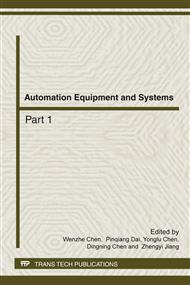p.339
p.355
p.360
p.365
p.370
p.374
p.378
p.382
p.386
Decision Analysis in Sustainable Product Development
Abstract:
As one of the main contributors to global environmental degradation, mechatronic industry must take the responsibility of improving the environmental performance of its products. Compared with further development of green technology, setting environmental protection willingly and seriously as one of the engineering optimization objectives are also important. This paper analyzes the decision making processes from the viewpoint of product life cycle and serves the purpose of reaching a balance between economic profit and environmental performance for each life cycle participator.
Info:
Periodical:
Pages:
370-373
Citation:
Online since:
February 2012
Authors:
Price:
Сopyright:
© 2012 Trans Tech Publications Ltd. All Rights Reserved
Share:
Citation:


